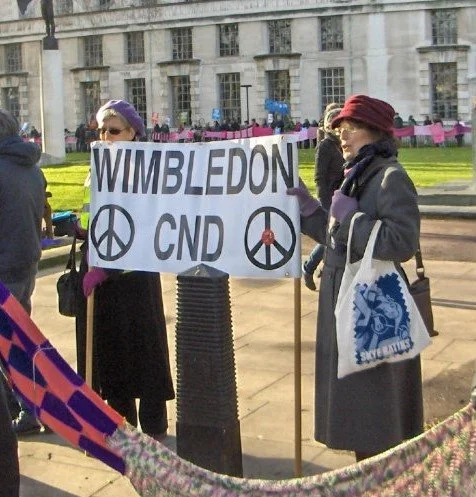Georgia touched on the interesting times that we are currently living in at home and abroad. There’s the possible denuclearisation of North Korea plus progress with the UN global ban treaty. We have a lifelong CND member as leader of the Labour Party, yet there is deadlock on the issue on much of the left.
The idealistic position taken by young people on the early Aldermaston marches is not really seen nowadays, and we need to find ways to engage young people to be active in the nuclear disarmament movement.
Amelia Womack, Deputy Leader of the Green Party, argued that ‘the nuclear deterrent’ makes it sound like something it isn’t. Other countries – non-nuclear countries – have enjoyed the same level of peace and security that we have. Government austerity has decimated our public services. Trade unions talk about jobs in the nuclear industry, but these are not the best jobs in the world, and it is perfectly feasible to transfer skills into other sectors, such as renewables.
Amelia talked about the obsession to renew Trident, describing it as a misguided allegiance. Is it really strong to press a button to kill thousands of people? Decades upon decades of people defending nuclear weapons has somehow seeped into people’s consciousness so that it is considered the norm, and we need a cross-party approach to tackle the dangers of nuclear power and nuclear energy. “It’s not just about political parties, it’s about political movements.” The government needs to come clean about its defence policy – for example, is the Hinkley power station going to pay for Trident or will we all pay for Trident through our electricity bills?
Young people seem very distanced from the nuclear atrocities of Hiroshima and Nagasaki which did not even happen in their parents’ lifetimes. Amelia concluded by saying that we are living in an age of quite violent nationalism, with moral judgements being made that affect all our lives.
Ian Chamberlain, anti-nuclear campaigner, started by talking about President Trump’s tweets over the past year and the way he has been ratcheting up tension and asked whether we felt safer by having Trident.
As a Labour Party member, Ian wants the movement to promote trust, cooperation and solidarity across the world; yet nuclear weapons are antithetical to that. We can’t advocate social justice while holding onto nuclear weapons: the people who advocate war and nuclear weapons are the same people who are responsible for growing levels of inequality, such as advocating privatisation of the NHS.
Although 53 per cent of Labour Party members oppose Trident, there are deeply entrenched sections of the Party who remain in favour, even with Jeremy Corbyn as leader. We also have the challenge of government hypocrisy: while it claims to support multilateral nuclear disarmament in theory, it has actually in practice done absolutely nothing to engage with the UN treaty to ban nuclear weapons multilaterally. Yet even Jeremy Corbyn cannot say in public that the Labour Party would sign up to the treaty. Ian argued that we must not accept this logic. Millions of people voted for Jeremy, who had made his position on nuclear weapons crystal clear.
We also need to question the so-called special relationship between the UK and the USA. Trump wants to tear up the Iran deal, but we cannot accept the establishment view on this. When the Labour Party gets into government it needs to be much more ambitious. We want a government of social justice, and this has to start by abolishing nuclear weapons. Ian said that when a Prime Minister goes to war, it is the most heinous thing and it is at that point (as with Blair and May) that they lose their humanity.








